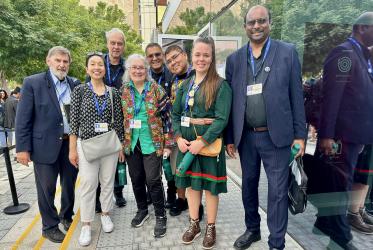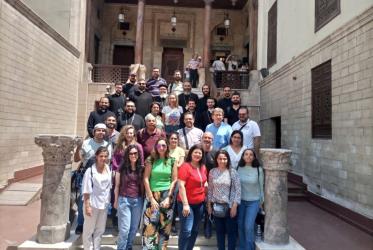Displaying 1 - 20 of 127
WCC, WHO commemorate 50 years of collaboration
04 April 2024
Compendium of Promising Practices of African Faith Community Interventions against Paediatric and Adolescent HIV
Executive Summary
23 March 2024
Thirsting for peace: Gaza's water woes in the midst of war
31 January 2024
WCC webinar explores decolonizing beauty
11 December 2023
As floods rage in eastern Africa, church acts to save the people
22 November 2023
Recommended Practices to Combat HIV-Related Stigma
A Guidebook for Local Faith Communities
05 October 2023
Faith Sector Implementation of the Global AIDS Strategy
05 October 2023
















